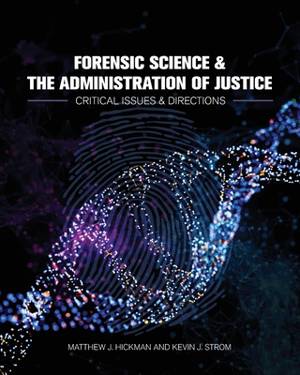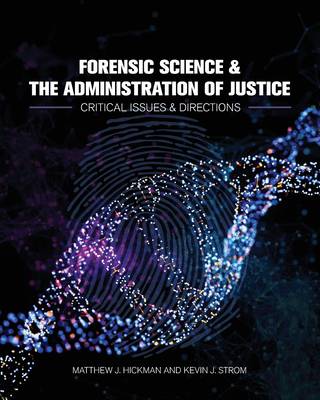
- Afhalen na 1 uur in een winkel met voorraad
- Gratis thuislevering in België vanaf € 30
- Ruim aanbod met 7 miljoen producten
- Afhalen na 1 uur in een winkel met voorraad
- Gratis thuislevering in België vanaf € 30
- Ruim aanbod met 7 miljoen producten
Forensic Science and the Administration of Justice
Critical Issues and Directions
Matthew Hickman, Kevin StromOmschrijving
Forensic Science and the Administration of Justice: Critical Issues and Directions, now in its second edition, examines the application of scientific methods and expertise within the legal context, highlighting the utility of these practices in both investigative and adjudicative processes. It explores the realities and challenges of forensic science as opposed to the often-misrepresented myths seen in popular media, offering readers salient insights into the efficacy, efficiency, and impact of forensic analysis on case outcomes.
Featuring chapters authored by contributors from various backgrounds-academia, laboratory direction, legal profession, and research-the book addresses a variety of topics, including the impact of DNA evidence on police investigations, the utility of forensic analysis for non-violent crimes, sustainability of forensic laboratories, and advances in technology such as forensic genetic genealogy. Additional chapters address backlog issues, cognitive biases, ethical concerns in forensic science, and more.
Forensic Science and the Administration of Justice is ideal for courses in forensic science, criminology, criminal justice, and related fields. It effectively bridges theory and real-world application, providing readers with an up-to-date and well-rounded perspective on the integral role of forensic sciences within the judicial process.
Specificaties
Betrokkenen
- Auteur(s):
- Uitgeverij:
Inhoud
- Aantal bladzijden:
- 338
- Taal:
- Engels
Eigenschappen
- Productcode (EAN):
- 9798823345194
- Verschijningsdatum:
- 30/09/2025
- Uitvoering:
- Paperback
- Formaat:
- Trade paperback (VS)
- Afmetingen:
- 203 mm x 254 mm
- Gewicht:
- 671 g

Alleen bij Standaard Boekhandel
Beoordelingen
We publiceren alleen reviews die voldoen aan de voorwaarden voor reviews. Bekijk onze voorwaarden voor reviews.








